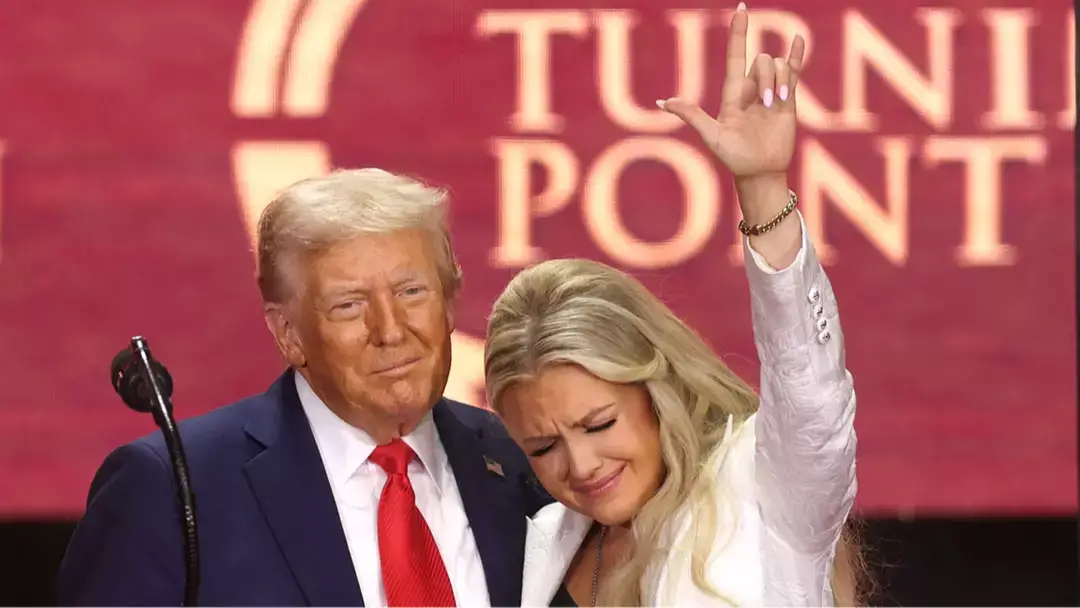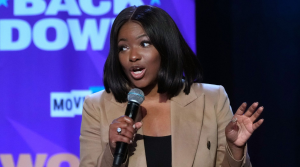Trump Reveals Charlie Kirk’s Final Request at Memorial, Pledges Justice
President Donald Trump delivered a heartfelt and impassioned speech at the memorial for conservative activist Charlie Kirk on Sunday in Glendale, Arizona. Kirk, the founder of Turning Point USA and a prominent voice among young conservatives, was tragically shot and killed on September 10 while speaking at Utah Valley University.
During the emotional event, Trump shared what he described as one of Kirk’s final requests: to “save Chicago.” Kirk, born and raised in the city’s suburbs, had long been vocal about crime in the region and advocated for policies to reduce violence and restore order. In recent weeks, Trump has promised to override Illinois Governor J.B. Pritzker and deploy National Guard troops to Chicago as part of a broad crackdown on crime, aligning with Kirk’s wishes.
Trump Honors Kirk’s Life and Legacy
Trump praised Kirk as a fearless and principled leader who fought for freedom and justice throughout the country.
“Charles James Kirk was heinously murdered by a radicalized leftist for speaking the truth that was in his heart,” Trump said. “He was violently killed because he spoke for freedom and justice, for God, touched for reason and for common sense. He lived bravely. He lived boldly and he argued brilliantly without apology. He did what was right for our nation.”
The former president also addressed Kirk’s family directly, acknowledging the profound void left by the activist’s death:
“No words can fill the void, but America loved Charlie Kirk. We owe him a profound and eternal debt of gratitude.”
Kirk’s Role in MAGA and MAHA Movements
Trump highlighted Kirk’s contributions in shaping conservative politics and expanding his own political reach. Kirk played a pivotal role in introducing Trump to influential figures such as Robert F. Kennedy Jr. and J.D. Vance. According to Trump, Kirk’s work on college campuses helped register thousands of young conservatives to vote, contributing to Trump’s strong showing among voters aged 18 to 29 during the 2024 election.
“Charlie is bigger than two weeks ago… think about it… he’s eternal. I just want to say we love him. He’s looking down today and saying, ‘That’s a great crowd!’” Trump added.
Security and FBI Investigation
Security remained tight at the memorial, reflecting ongoing concerns about potential threats. In addition to the tribute, FBI Director Kash Patel provided an update on the investigation into Kirk’s assassination. Tyler Robinson, 22, was arrested and charged with the murder, but Patel noted that the agency is investigating the possibility of accomplices.
“We are meticulously investigating theories and questions, including the location from where the shot was taken, the possibility of accomplices, the text message confession and related conversations, Discord chats, the angle of the shot and bullet impact, how the weapon was transported, hand gestures observed as potential ‘signals’ near Charlie at the time of his assassination, and visitors to the alleged shooter’s residence in the hours and days leading up to September 10, 2025,” Patel said in a post on X.
Patel emphasized the FBI’s commitment to justice:
“The entire FBI mourns the loss of Charlie Kirk. We will not rest until justice is served, and our investigation into this assassination will continue until every question is answered.”
Discord Messages Add Context
Reports have surfaced confirming that Robinson allegedly sent messages to a small group on Discord roughly two hours before his arrest. One post reportedly read:
“Hey guys, I have bad news for you all … It was me at UVU yesterday. im sorry for all of this.”
These messages are now part of the broader investigation into Kirk’s murder.
Unity at the Memorial
Trump’s speech was met with loud cheers from tens of thousands of attendees inside State Farm Stadium. In a symbolic gesture of political unity, billionaire Elon Musk joined Trump in the booth, and the two shook hands, reflecting a moment of collaboration amid a tense national climate.
Trump’s tribute to Kirk also highlighted his personal connection with the activist. Kirk, he noted, had a deep commitment to mentoring young conservatives and supporting the MAGA and MAHA movements.
“We owe Charlie a profound and eternal debt of gratitude,” Trump said.
He also reflected on the surreal moment he learned about Kirk’s death, saying the incident resonated deeply with him personally.
“The gun was pointed at him, but the bullet was aimed at every one of us,” Trump stated.
Kirk’s Broader Impact
Kirk’s influence extended far beyond politics. As founder of Turning Point USA, he focused on engaging young voters, teaching the values of personal responsibility, free speech, and activism on college campuses. His death has left a void in the conservative movement, especially among youth organizations that he helped organize and mobilize.
Following Kirk’s death, Trump ordered U.S. flags at the White House to be lowered to half-staff in his honor. In interviews afterward, Trump remarked that Kirk had the potential to succeed him politically, highlighting the respect and admiration he commanded across the movement.
Looking Ahead
The memorial and subsequent investigation have further intensified national attention on political violence and security for public figures. While Tyler Robinson faces capital charges, authorities remain vigilant about potential accomplices and the broader context surrounding the assassination.
Trump’s eulogy underscored Kirk’s dedication to his causes and the values he championed, portraying the activist as a martyr who fought for freedom, justice, and the empowerment of young conservatives.
“Charlie’s murder was not just an attack on one man or one movement, it was an attack on our entire nation,” Trump said.
By sharing Kirk’s final wish to save Chicago and honoring his achievements, Trump framed the memorial as a call to action and a reaffirmation of the late activist’s vision.

James Jenkins is a celebrated Pulitzer Prize-winning author whose work has reshaped the way readers think about social justice and human rights in America. Raised in Atlanta, Georgia, James grew up in a community that instilled in him both resilience and a strong sense of responsibility toward others. After studying political science and creative writing at Howard University, he worked as a journalist covering civil rights issues before dedicating himself fully to fiction. His novels are known for their sharp, empathetic portraits of marginalized communities and for weaving personal stories with broader political realities. Jenkins’s breakout novel, Shadows of Freedom, won national acclaim for its unflinching look at systemic inequality, while his more recent works explore themes of identity, resilience, and the fight for dignity in the face of oppression. Beyond his novels, James is an active public speaker, lecturing at universities and participating in nonprofit initiatives that support literacy and community empowerment. He believes that storytelling is a way to preserve history and inspire change. When not writing, James enjoys jazz music, mentoring young writers, and traveling with his family to explore cultures and stories around the world.









